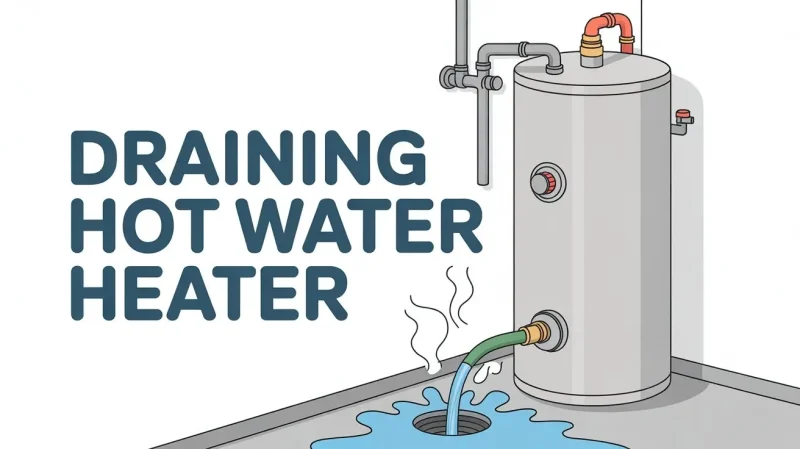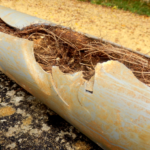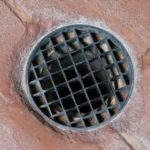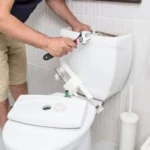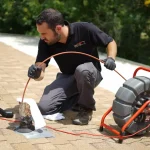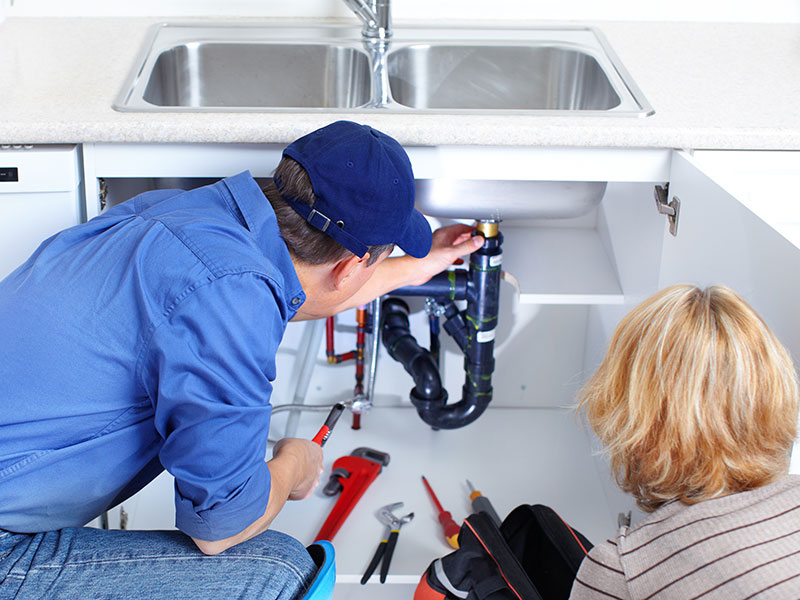If you’ve ever turned on the shower expecting warmth but got a burst of cold water instead, your water heater might be due for some attention. Most homeowners never think about draining hot water heater, yet this simple maintenance task can extend its lifespan, boost efficiency, and lower energy bills.
As a home décor and DIY enthusiast, I’ve learned that maintaining a beautiful home isn’t just about color palettes and cozy lighting it’s also about caring for the systems that keep it running. Regularly draining your hot water heater is one of those small but powerful habits that save you from bigger, more expensive problems later.
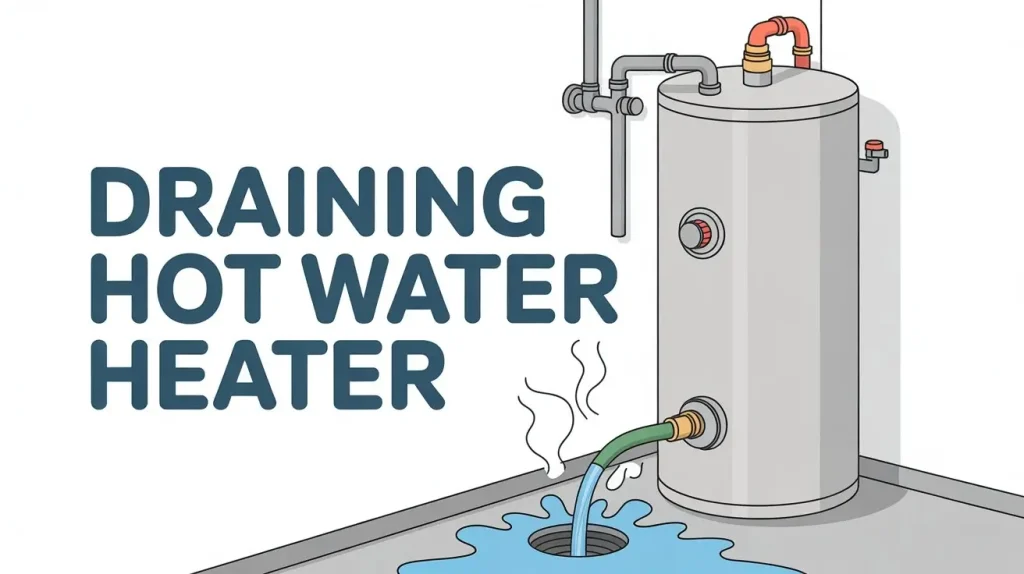
Content
Why Draining Hot Water Heater Is Important
Over time, minerals like calcium and magnesium from hard water settle at the bottom of your heater’s tank. This sediment buildup acts like insulation, preventing your heater from warming water efficiently.
Think of it like cooking soup with a thick layer of grit at the bottom of the pot it slows everything down, wastes energy, and can even damage the pot itself. The same happens when you neglect draining hot water heater for too long.
Regularly draining hot water heater removes sediment, reduces corrosion, eliminates strange noises, and helps the system heat water more effectively.
How Often Should You Be Draining Hot Water Heater?
Experts at the best plumbing company recommend draining your hot water heater every six to twelve months. If your home has hard water, plan to do it every six months; with softer water, once a year is usually enough.
Watch for these signs that your tank may need attention sooner:
- Hot water takes longer to appear
- Rumbling or popping noises coming from the tank
- Cloudy or rusty water
- Higher-than-usual energy bills
If any of these sound familiar, it’s time to start draining your hot water heater or call the best plumbing company in your area before sediment buildup leads to costly damage.
Tools You’ll Need Before Draining Hot Water Heater
Before getting started, gather a few simple items:
- A garden hose
- A bucket or floor drain
- Protective gloves
- A flathead screwdriver
- A little patience
Having everything ready makes draining hot water heater easier, safer, and faster.
Step-by-Step Guide to Draining Hot Water Heater
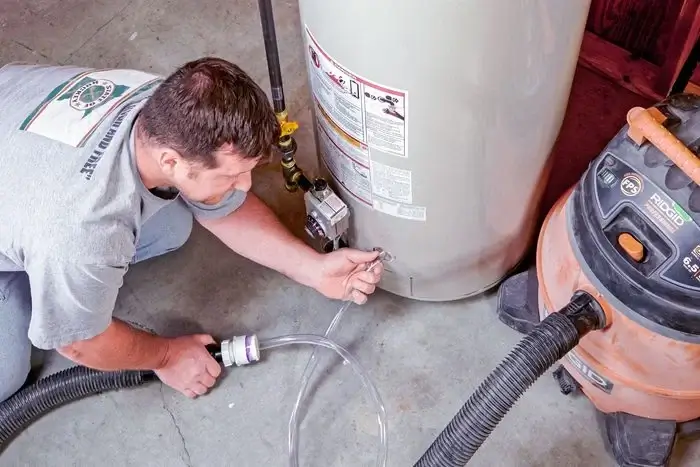
You don’t need to be a plumber to do this just follow these simple steps to safely handle draining hot water heater at home.
Step 1: Turn Off Power or Gas
If you have an electric heater, turn off the breaker. For gas models, set the control to “Pilot.” This keeps the system safe while you work.
Step 2: Shut Off Cold Water Supply
Find the cold-water valve on top of the heater and turn it clockwise. This prevents new water from entering the tank.
Step 3: Attach the Hose
Connect your garden hose to the drain valve near the bottom of the tank. Place the other end in a floor drain or outside where the water can flow safely.
Step 4: Drain the Tank
Open the valve and let the hot water flow. Be cautious it’s hot! If the flow slows, open a nearby hot-water faucet to let air into the system.
Step 5: Flush Sediment
Once empty, briefly turn on the cold-water valve to stir up and rinse out remaining debris. This ensures draining hot water heater completely removes buildup.
Step 6: Refill and Restart
Close the valve, remove the hose, and turn the cold-water supply back on. Once the tank is full, restore power or relight the pilot.
That’s it you’ve successfully finished draining your hot water heater and improved your home’s energy efficiency in under an hour.
Real-Life Case Study: My Basement Lesson
A few years ago, I ignored draining hot water heater for over three years. One day, I noticed a loud gurgling sound from my basement. Curious (and a bit alarmed), I decided to drain it myself.
When I opened the valve, brown, murky water poured out for nearly five minutes a clear sign of heavy sediment buildup. After draining hot water heater completely and flushing it clean, the noise stopped, and my hot water returned to normal.
The best part? My energy bill dropped noticeably the next month. Since then, I’ve made draining the hot water heater part of my seasonal home maintenance routine just like cleaning air filters or checking smoke alarms.
What Happens If You Skip Draining Hot Water Heater?
Ignoring this simple task can lead to bigger issues, such as:
- Reduced efficiency — your heater works harder and uses more energy
- Corrosion and leaks — trapped sediment damages the tank lining
- Noisy operation — air pockets cause popping and rumbling sounds
- Shorter lifespan — buildup accelerates wear and tear
Skipping draining your hot water heater might save time today, but it could cost hundreds in repairs tomorrow.
How Long Does Draining Hot Water Heater Take?
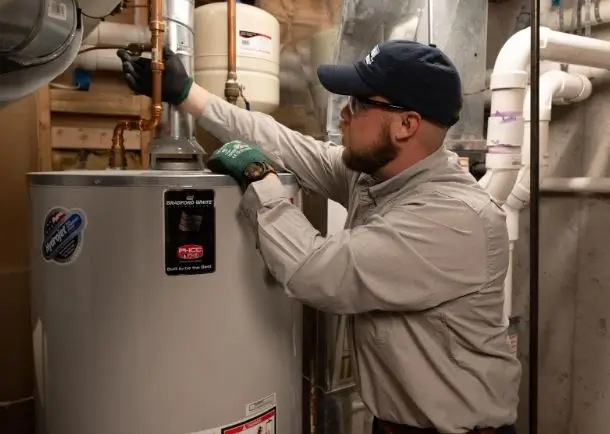
Usually, draining hot water heater takes 30 to 60 minutes. Larger tanks or older units with heavy buildup may take a bit longer.
To make it faster:
- Open a nearby faucet to release air
- Check that your hose isn’t kinked
- Flush twice if sediment is thick
Consistency is key the more often you do draining hot water heater, the smoother it gets each time.
When to Call a Professional
If the drain valve won’t open, the water flows slowly, or you spot leaks, it’s time to call a plumber. A pro can safely inspect, flush, and repair your unit.
Still, most homeowners find that draining hot water heater is a simple DIY project that offers long-term savings and peace of mind.
Conclusion:
Whether you’re renovating your bathroom or simply keeping your home efficient, draining your hot water heater should be on your regular to-do list. It’s quick, affordable, and one of the easiest ways to tackle plumbing problems before they start. Think of it as decluttering your plumbing system flushing out old sediment and giving your water heater a fresh start. A clean, well-maintained unit delivers steady hot water, lower energy bills, and fewer repair hassles. So, grab your hose, set a reminder every six months, and start draining your hot water heater your future self (and your shower) will thank you for taking the time to tackle plumbing problems early.
FAQs About Draining Hot Water Heater:
Can I drain my hot water heater myself?
Yes, you can drain your hot water heater yourself by following simple safety steps and using a garden hose.
Are you supposed to drain hot water heaters?
Yes. Regular draining prevents sediment buildup, improves efficiency, and extends your water heater’s lifespan.
How long does it take for a 50 gallon water heater to drain?
Draining a 50-gallon water heater usually takes 30–60 minutes, depending on sediment and water pressure.
How do you drain sediment from a hot water heater?
To drain sediment, connect a hose to the valve, empty the tank, then flush clean water through the system.

Eileen is a home blogger who loves to share her experiences with others. She likes being motivated and encourages people to be the best they can be.
